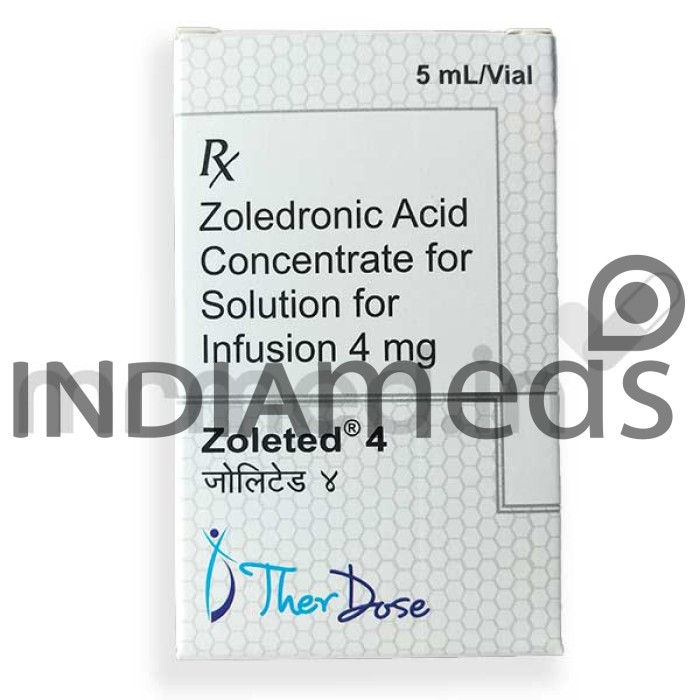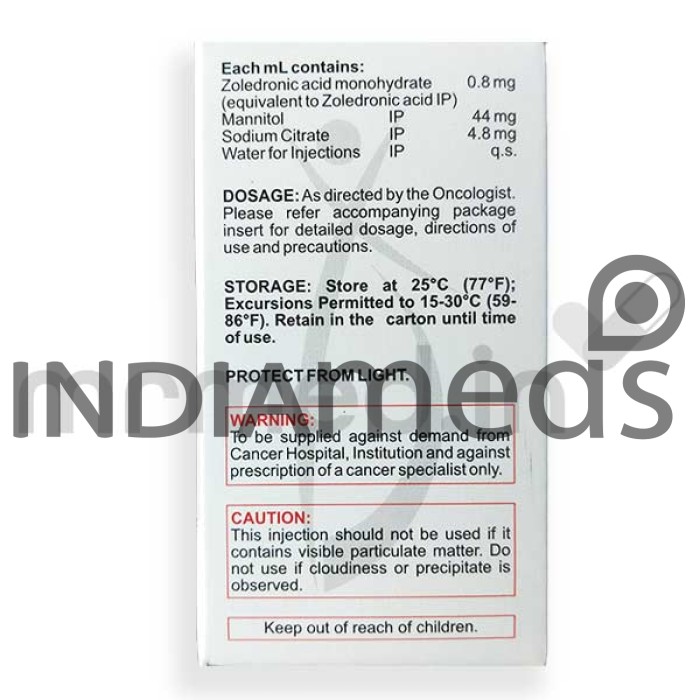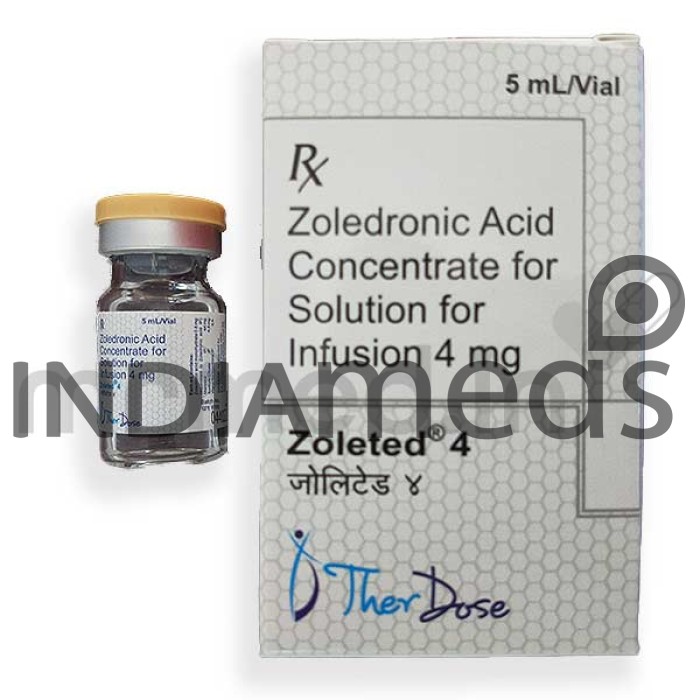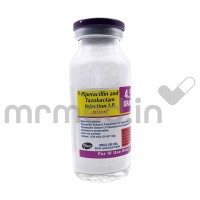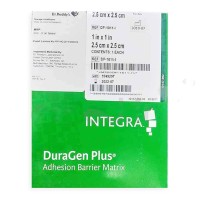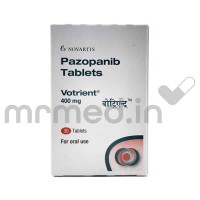Zoleted 4mg contains the active substance Zoledronic Acid. It belongs to the group of substances called bisphosphonates. It is used to reduce the amount of calcium in the blood in adult patients where it is too high due to the presence of a tumor. Tumors can accelerate normal bone change in such a way that the release of calcium from bone is increased. This condition is known as tumor-induced hypercalcemia (TIH). It is also used to prevent bone complications in adult patients with multiple myeloma and bone metastases from solid tumors (spread of cancer from the primary site to the bone), in addition to standard cancer therapy.
Zoleted 4mg is also indicated to prevent or treat osteoporosis (a condition in which the bones become thin and weak and break easily) in women who have undergone menopause. It is also used to treat osteoporosis in men. It is used to treat Paget’s disease of bone (a condition in which the bones are soft and weak and may be deformed, painful, or easily broken). Other uses include treating or preventing osteoporosis in men and women taking glucocorticoids (a corticosteroid medication that may cause osteoporosis).
Do not take this injection if you are allergic to zoledronic acid, another bisphosphonate, or any other ingredients of this medicine and if you are pregnant or breastfeeding. Before initiating the treatment, inform your physician if you have kidney or liver problems, bone diseases, pain, swelling, or jaw numbness. This medicine is not recommended for use in adolescents and children below the age of 18 years. Zoleted 4mg is not cancer chemotherapy and will not slow or stop the spread of cancer. However, it can be used to treat bone diseases in patients with cancer.
Therapeutic Effects of Zoleted 4mg Injection
Pregnancy
Zoleted 4mg is unsafe to administer in pregnant women because it may affect the fetus. Inform your physician if you are pregnant, suspect pregnancy, or planning to become pregnant.
Breast Feeding
Breastfeeding is not recommended in patients taking Zoleted 4mg because the medicine passes into the breast milk in small amounts and may harm your baby.
Lungs
It is unknown whether Zoleted 4mg can be used in patients with lung disorders. Consult your doctor if you have any lung diseases before starting the treatment.
Liver
It is unknown whether Zoleted 4mg can be used in patients with liver disorders. Inform your physician if you have liver problems before initiating the therapy.
Alcohol
Caution is advised when consuming alcohol with Zoleted 4mg. Please consult your doctor.
Driving
It is unsafe to drive or operate heavy machinery after using Zoleted 4mg as this medicine causes drowsiness and sleepiness.
Common
- Nausea, vomiting
- Fatigue
- Anemia
- Bone pain
- Constipation, diarrhea
- dyspnea, and fever
- Swelling in the legs and feet
- Decreased weight
- Abdominal pain
- Muscle pain
- Tiredness
Serious
- Changes in heart rhythm
- Severe hypersensitivity skin reactions
- Decreased calcium levels
- Severe bone pain
- Severe kidney problems
- Unusual fractures of the bone
Notify your healthcare provider immediately if you experience symptoms of hypocalcemia (low calcium levels), such as muscle spasms, twitches, cramps, or numbness or tingling in fingers, toes, or the area around your mouth. You should also notify your doctor if you experience symptoms of a fracture or severe bone, joint, or muscle pain.
Severe side effects of Zoleted 4mg include cardiovascular problems like atrial fibrillation, bradycardia, hypotension, or hypertension.
Limited information is available on the liver's safety in patients receiving Zoleted 4mg. Inform your physician if you have any liver disorders.
Zoleted 4mg is an osteoporosis medication that can help strengthen your bones and reduce your risk of breaking a bone.
Zoleted 4mg belongs to the class bisphosphonates. Bisphosphonates can also be given as tablets; ask your doctor about this. Inform your doctor before switching to any alternative medicines.
Molecule name: Zoledronic Acid | Therapeutic class: Calcium Regulator |
Pharmacological class: Bisphosphonates | Indications: 1. Treat hypercalcemia of malignancy 2. Multiple myeloma 3. Bone metastases from solid tumors 4. Osteoporosis in postmenopausal women 5. Osteoporosis in men 6. Paget’s disease of bone |


